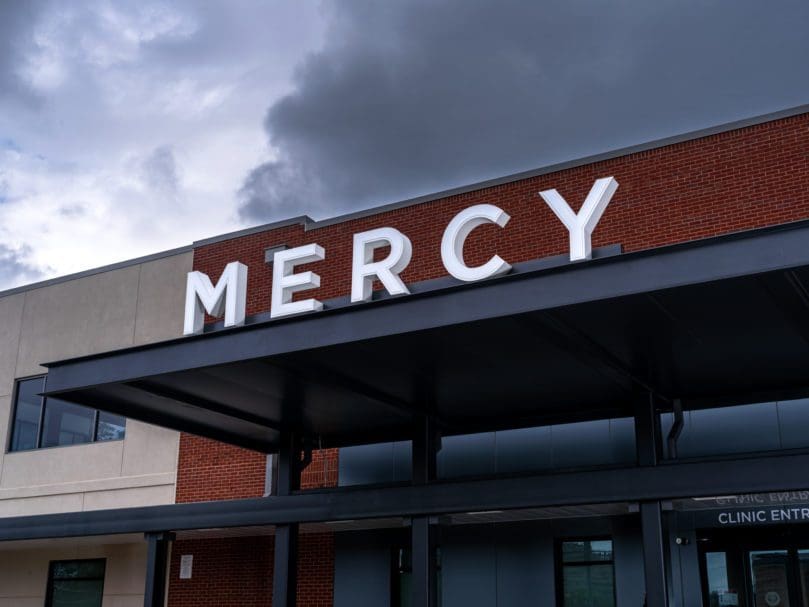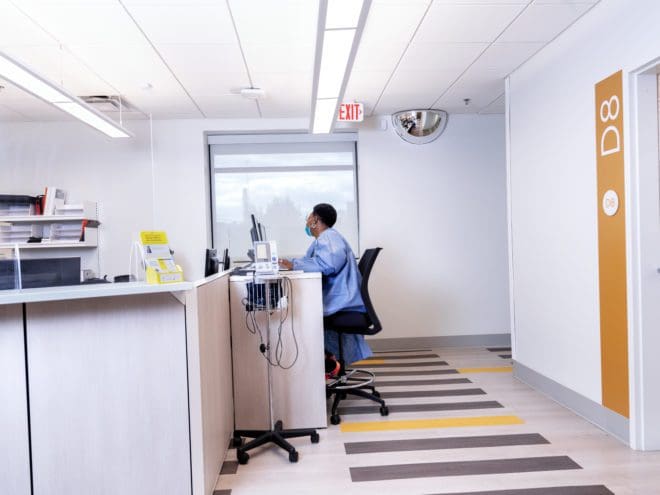 Photo by Johnathon Kelso
Photo by Johnathon KelsoAtlanta
Archdiocese of Atlanta creates $400,000 endowment for Mercy Care
By NICHOLE GOLDEN, Editor | Published October 28, 2021
ATLANTA—The Archdiocese of Atlanta has created an endowment of $400,000 for Mercy Care to support its mission of providing medical and dental care to the uninsured and underinsured communities.
With its network of fixed and mobile clinics, Mercy Care is Atlanta’s most prominent healthcare program for the homeless. It also connects the working poor and homeless with social services. The endowment’s goal is to help pay for treatment by Mercy doctors, therapists and dentists.
In a letter to Mercy Care leaders announcing the endowment, Archbishop Gregory J. Hartmayer, OFM Conv., said the archdiocese has always been an “extraordinarily proud partner” of the program.
The endowment will be held by the Catholic Foundation of North Georgia, and donors can contribute to the growth of the fund.
Steve Siler, president of the Mercy Care Foundation, said the endowment will help fund operating costs versus capital needs.
“The archdiocese has been tremendously supportive of our mission,” said Siler. “We didn’t have an endowment presence before. It will only help our healthcare ministry to the poor.”
Siler said the program’s Growing Mercy Giving Hope capital campaign concluded earlier this year and raised $26 million to expand its 20-year-old Decatur Street Clinic.
By 2010, the number of patients being served had tripled and the need for space grew, Siler noted.
Mercy Care is continuing to serve more than 6,000 patients at the medical facility on Decatur Street as it is undergoing expansion. The work is expected to be complete in early 2022.

Dental assistant Clenda Tate works inside the recently expanded Mercy Care Clinic in downtown Atlanta. A new endowment, established by the archdiocese, will support the program’s mission of delivering care to the poor. Photo by Johnathon Kelso
The 36,000 square-foot addition doubles the size of the Decatur Street campus and allows for growth. The expansion will enable Mercy Care to serve 3,000 more behavioral health patients, 4,000 more dental patients and 1,000 more vision patients.
The expansion creates a dedicated area for telehealth appointments, more spaces for counseling, group therapy and health education. A private space for pastoral care and to host representatives from partner organizations is also part of the reconfiguration. Mercy Care works with organizations that provide services for employment, housing, food resources and benefits.
Siler said that in 2018, Mercy Care began a more integrated approach to incorporate behavioral health services with primary care.
Siler said some estimates show that 70 percent of Mercy Care’s patients need behavioral health support for issues ranging from depression to anxiety. A primary care provider can do a “warm hand-off” to a counselor or other specialist if they feel a client needs help. A same-day, same-site visit with a behavioral health provider means a patient doesn’t need a separate appointment date at a different location.
The pandemic held many obstacles for Mercy Care’s staff and providers including the initial problem of “just finding enough PPE (personal protective equipment),” said Siler. The subsequent challenge was locating enough COVID tests.
In the first months of the coronavirus pandemic, providing care in a safe way was challenging.
Siler said the dental clinic was the most impacted, and its services have not rebounded entirely.
“In 2021, we’ve returned to more normal operations,” he said.
Mercy Care teamed up with community partners to offer COVID vaccinations, and Siler said the key word has been adapting.
“That’s really at the core of our mission,” he said.
Siler said the true heroes throughout this time have been the Mercy Care employees.
“There’s just a tremendous amount of dedication there,” he said.